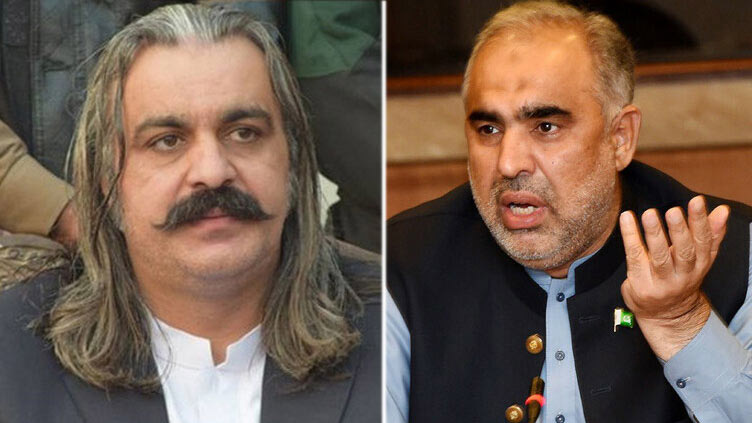ISLAMABAD: The Pakistan Tehreek-e-Insaf (PTI), which presents itself as a national-level political force, has failed to show unity on the contentious Kalabagh Dam project; a scheme widely seen as essential for future generations.
The split surfaced after Khyber Pakhtunkhwa Chief Minister Ali Amin Gandapur openly voiced support for building the Kalabagh Dam. “I am in favour of the Kalabagh Dam. It should be built. Build consensus, address concerns of the provinces, and construct the dam,” Gandapur told the media. He urged a national debate on the issue, asking the press to play a constructive role.
Rejecting political posturing, Gandapur said, “Think not in terms of politics, but of the state. Pakistan needs the Kalabagh Dam. Smaller dams cannot be an alternative.” He also accused the Awami National Party (ANP) of politicising the issue, questioning Aimal Wali’s repeated claims that the dam would only be built over “dead bodies.”
The KP chief minister further pushed for creating more provinces to improve governance, noting that Pakistan was the only large country still running on four provinces. He said KP was working on two dams of its own, but stressed that Sindh’s flooding and water shortages could only be resolved if provinces sat together.
However, PTI’s central leadership quickly distanced itself from Gandapur’s remarks. Former National Assembly speaker Asad Qaiser termed his statement a “personal opinion” and said it should not be mistaken as party policy. “We don’t consider that Pakistan needs Kalabagh Dam. Small dams can be built instead,” Qaiser posted on his ‘X’ handle. He argued that projects like the Chashma Right Bank Canal would serve Gandapur’s own district of Dera Ismail Khan better than pursuing divisive issues.
PTI Chairman Barrister Gohar Ali Khan, speaking after a meeting with the party founder at Adiala Jail, endorsed the need for dams but called for consensus through the Council of Common Interests (CCI). He said natural disasters like floods demanded urgent solutions, but warned that such projects must carry the approval of all provinces.
PTI Secretary General Salman Akram Raja was even clearer, saying Gandapur’s words “do not represent the official stance of PTI.” He reminded that Sindh and Khyber Pakhtunkhwa still had serious reservations about the dam, and harmony was needed before any major project could move forward.
Outside PTI, Gandapur’s remarks drew fierce backlash. PPP Sindh president Nisar Khuhro said the KP chief minister was defying his own assembly, which had unanimously rejected the Kalabagh Dam. He accused PTI founder Imran Khan of covertly backing the project and warned Sindh would never accept it. “Kalabagh is a conspiracy to starve Sindh,” Khuhro said.
ANP chief Aimal Wali Khan, JUIF spokesperson Abdul Jalil Jan, and QWP leader Sikandar Hayat Khan Sherpao all reiterated that the project was “a dead horse,” pointing to ongoing work on Diamer-Bhasha and Mohmand dams.
Yet, in contrast, PMLN leader and Defence Minister Khawaja Asif welcomed Gandapur’s statement, stressing that Pakistan needed water storage capacity to avoid wasting resources. He urged PTI not to oppose the dam “for political reasons.”
The controversy highlights PTI’s fractured approach. A party claiming national leadership cannot even adopt a united stance on the Kalabagh Dam; a project many consider vital for the country’s future generations.


